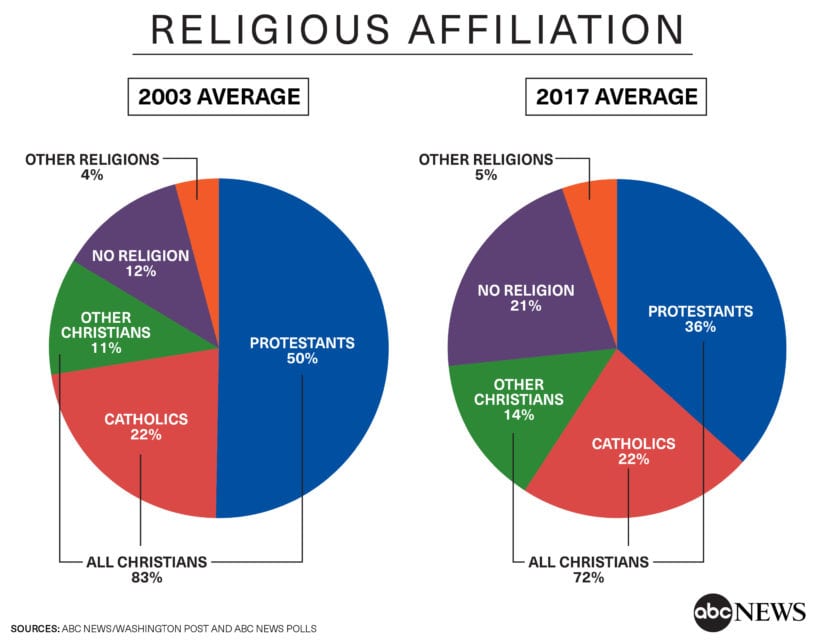At some point, if you are sincere about your Christian faith, you are going to have a conversation with someone about it. Or are you?
Let me back up a minute, if “being a Christian” is something you take seriously, you are probably going to THINK about having a conversation with someone about it. AND—you may wonder HOW to have that conversation.
Listen, I have been a Christian my whole life and have also been a thoughtful student of the human art of conversation for years and I find this thing—“sharing my faith”—incredibly hard to do.
But I WANT to—I really want to. I actually believe that meeting Jesus on this side of heaven will make life richer and more joyful and more peaceful than anything else available to us. There is a tenacity and fierceness to God’s love through Jesus that holds people firmer in the face of life’s struggles than anyone can imagine.
I want everyone to know this.
Everyone.
Well, the key is figuring out how to start, how to continue the conversation, and eventually, how to let it go.
Join me here:
Relationships are complicated. Communication between two individuals is often fraught with misunderstanding. The timing isn’t always right and sometimes you are just not in the mood.
But despite all that, I want to let you in on a few key principles that you absolutely need to know before you take this type of conversation on.
Here they are:
1. Move Past Your Own Assumptions.
Often, we have already pre-decided what someone thinks about God.
You may know that a person doesn’t attend church regularly so you assume that they think spiritual things are irrelevant. Really? Why continue to assume that, if there is no evidence to support it? You haven’t asked the person yet. Yes, there is a risk in asking, but make sure your preconceived hunch is not cheating you out of a conversation you are both interested in having.
Statistically, we know that more people are interested in faith conversations than not. If you play the odds, the person you are sitting across from is more likely wishing you would bring it up.
2. Express a Genuine Interest.
Don’t begin with your baptism story.
First, ask him how he is doing, ask how she is really doing. And then, listen. Your first several conversations may never include a single idea of your own. Ask about life and ideas and plans and achievements and concerns and anxieties. Be intentionally respectful.
You should hear yourself saying, “What do you think about that?” “How did you come to feel this way?” “What’s it like for you when that happens?” Validate. Empathize. Be motivated by a genuine desire to engage. When their story breaks your heart, because real life has a way of doing that, tell them you don’t know what to say, but politely offer that when you have been similarly at the very end of yourself, you have prayed about it. Because that is being honest—the last time you had no idea how to fix your broken heart, you prayed—and by offering to do for someone else what you would do for yourself, you are caring for them.
If you don’t care about this person, you don’t get to nudge the conversation into the faith-arena. You don’t get to invite them to church. You don’t get to share your spiritual opinions.
So if you find yourself engaged in a conversation with someone, and get distracted or caught up with some selfish thoughts, stop thinking you will share your faith with them. You shouldn’t. First comes the caring and then comes the sharing. Your first conversation earns you the right to the next conversation. Keep this top of mind.
3. Know Your Truth.
I think about Billy Graham. He stands out in the crowd of humanity as one of the most influential leaders of all time. He knew his truth. His passion for teaching millions came from a deeply personal conviction centered around the resurrection of Jesus Christ and the spiritual reconciliation this offered to the world.
Billy Graham had studied the scriptures to the point that he could not keep this life-saving message of unconditional and super-natural love and acceptance to himself. Out of this conviction, Billy Graham shared his faith.
Reach daily into scripture and apply the words of Jesus and words of the Apostle Paul to your life. You will nurture and ground your soul. God will use you.
4. Share Your Stuff.
Everybody has stuff. Your life is not all together. Life is sometimes hard for everybody. Be appropriately but profoundly honest.
Talk about how your job leaves you dissatisfied, how you struggle to get a good night’s sleep, how you are seeing a marriage counselor, how you worry about your kids and your weight and your money.
If you share your thoughts on God in the absolutely false context that your life is perfect, your shared words will fly-fly-away on the next winsome breeze of nothingness because what you have to say about God doesn’t really matter anyway. You obviously don’t need Him. You have got life figured out on your own. That will be a shame, when all the while you want to communicate that God’s redeeming love bolsters you and grounds you.
The truth is that you believe that Jesus died for all the bad, unexplainable anguish and garbage going on in the world and going on in your life. Tell your friend that. They will listen.
5. Let Go.
You are going to invest in people by sharing your spiritual worldview, and undeniably, the truth of what you share has the power to transform.
When people lean into God-conversations, the possibilities for life-change is incredible. You will be offering a peek inside of a heart and mind sold out for God and that is wonderful. This extension of yourself will be a gift that could truly transform your friend’s experience of living. Or maybe it won’t. Maybe someone will grow to like you but at the same time, will turn you down every time you invite them to church. Maybe it will feel odd when you offer to pray for someone’s loss and you will only receive a grateful smile but a guarded expression. This person who now trusts you and cares about you too will possibly always let you talk about your Christianity but never be influenced to take on those views for themselves. And you know what? That’s OK. The potential conviction of knowing their need for a Savior might happen in their heart but it just as likely, might not. That’s not your responsibility. That’s not your job. It is a noble and even righteous goal to bring people to Christ, but don’t make a single person your conversion-project.
Let. that. go. And while you do, continue to vulnerably invest and also deepen your own faith. Never stop being “for” your friend and focus on moving past the judgments and assumptions that will threaten your friendship. God has got this.
Relax and enjoy knowing that. Proclaim well.
This article originally appeared here.


 wherever they go by including items that help them engage a variety of ways to pray and things to pray for like balloons, smiley and sad faces, candles, and even play dough.
wherever they go by including items that help them engage a variety of ways to pray and things to pray for like balloons, smiley and sad faces, candles, and even play dough. taking pictures of his head, pasting them on styrofoam, and putting them on a stick. Each family got a Mr. Adam to take with them this summer and told to post pictures on Facebook of their family’s summer adventures, hashtagged
taking pictures of his head, pasting them on styrofoam, and putting them on a stick. Each family got a Mr. Adam to take with them this summer and told to post pictures on Facebook of their family’s summer adventures, hashtagged 










